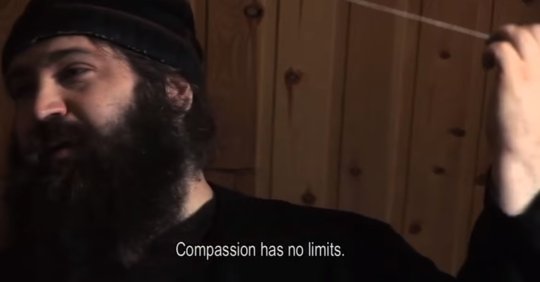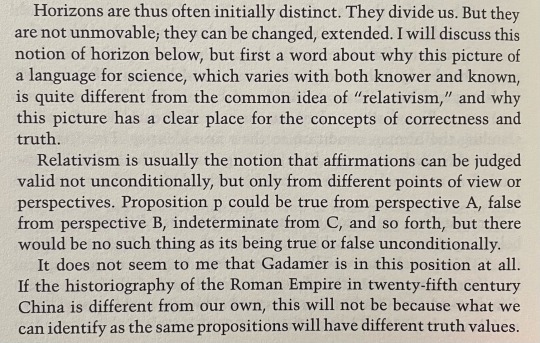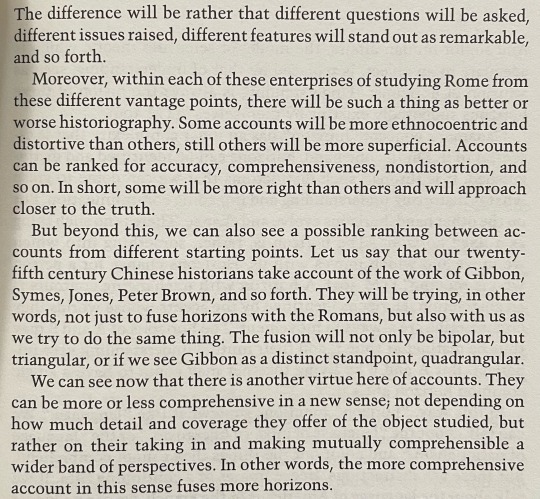Text
It can be painful - sometimes abhorrent - to us to admit this, but the character of even the very worst among us is in part the product of external contingencies, and somewhere in the history of every soul there are moments when a better way was missed by mischance, or by malign interventions from without, or by disorders of the mind within, rather than by any intentional perversity on the soul's own part.
David Bentley Hart, That All Shall Be Saved
57 notes
·
View notes
Text
I come across things in writing that I otherwise would've forgotten about, things that correct a slightly misleading memory, confirm the more accurate ones, or just restore some details. It's not that journaling things as they happen is a guarantee of infallibility, but neither is history or neurological research!
Also, I wonder if the drawing on the cover is Strawson's own.
Things that Bother Me: Death, Freedom, The Self, Etc. by Galen Strawson
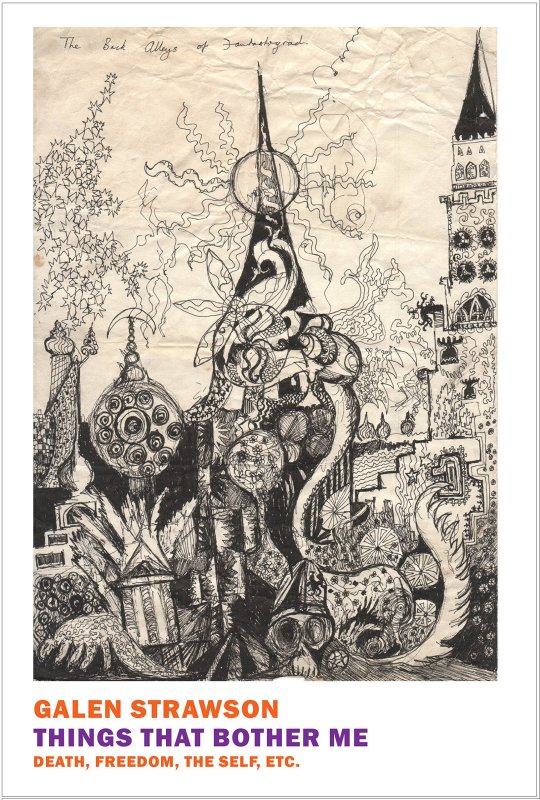
sHere my main puzzlement is about what it might be to "give an ethical character to [one's] own life taken as a whole" in some explicit way and about why on earth, in the midst of the beauty of being, it should be thought to be important to do this. . . .
. . . . I think the best lives almost never involve this kind of self-telling. When a narrative individual like the philosopher John Campbell claims that "identity [through time] is central to what we care about in our lives: one thing I care about is . . . what I have made of my life," I'm bewildered. I'm completely uninterested in the answer to the question "What has GS made of his life?" or "What have I made of my life?" I'm living it, and this sort of thinking about it is no part of it. This doesn't mean that I am in any way irresponsible. It's just that what I care about, insofar as I care about myself and my life, is how I am now. The way I am now is profoundly shaped by my past, but it is the present shaping consequences of the past that matter, not the past as such. (A Fallacy of Our Age, pp. 56-57)
***
This seems to me to express an ideal of control and self-awareness in human life that is mistaken and potentially pernicious The aspiration to explicit narrative self-articulation is natural for some—for some, perhaps, it may be helpful—but in others it's unnatural and ruinous. My suspicion is that it almost always does more harm than good—that the narrative tendency to look for story or narrative coherence in one's life is, in general, a gross hindrance to self-understanding: to a just, general, practically real sense, implicit or explicit, of one's nature. It's well known that telling and retelling one's past leads to changes, smoothings, enhancements, shifts away from the facts, and research by Nader, LeDoux, and others has shown that this process ("reconsolidation") isn't just a charged psychological foible. It turns out to be an inevitable neurophysiological consequence of the process of laying down memories that every studied conscious recall of past events brings an alteration. The implication is plain: the more you recall, retell, narrate yourself, the further you risk moving away from accurate self-understanding, from the truth of your being. Some are constantly telling their daily experiences to others in a storying way and with great gusto. They're drifting ever further off the truth. Others never do this, and when they're obliged to convey facts about their lives they do it clumsily and uncomfortably and in a peculiarly antinarrative way. (A Fallacy of Our Age, pp. 67-68)
***
. . . . No one can be ultimately deserving of praise or blame for anything. It's not possible. This is very, very hard to swallow, but that's how it is. Ultimately, it all comes down to luck: luck—good or bad—in being born the way we are, luck—good or bad—in what then happens to shape us. We can't be ultimately responsible for how we are in such a way as to have absolute, buck-stopping responsibility for what we do. At the same time, it seems we can't help believing that we do have absolute buck-stopping responsibility. (You Cannot Make Yourself the Way You Are, p. 115)
***
So if there is any defensible sense in which life is life-writing, I think it is—at best—"automatic writing." One's life isn't "a cloth woven of stories told," in Ricoeur's words, threaded with varying degrees of fiction. Never mind the fact that claims of this kind seem to insult those who have suffered greatly. Never mind the adamantine fact that one's life is simply one's life, something whose actual course is part of the history of the universe and 100 percent nonfictional. For now it's enough to hold on to the point that Alasdair Maclntyre made right at the start of the current narrativist movement: "We are never more (and sometimes much less) than the co-authors of our own narratives. Only in fantasy do we live what story we please."
Every life comes with a thrilling stack of counterfactuals. You might so very easily never have met the person you love, or believe you love. And what are the chances of your coming into existence? There's a sense in which they're vanishingly small. Your parents might so very easily never have met, and their parents in turn, and their parents in turn. And if you hadn't gone to X because Y fell ill, you'd never have discovered Z. The irony is that these counterfactuals are great material for good stories, and easily give rise to a sense of wonder or providence. But the wonder has no justification, if only because spectacular counterfactuals hold true of one's life whatever happens. Consider X, amazed at his astonishing good fortune in meeting Y: it might so easily never have happened. But if he hadn't met Y he might now be weeping with happiness at his good fortune in meeting Z. (The Unstoried Life, pp. 183-84)
1 note
·
View note
Text
Can we have more articles on Cratylus & Wittgenstein please !? 🥺
There are so few articles on the both of them ugh this makes me so sad
2 notes
·
View notes
Text

First chapter of Nicholas Rescher's Conditionals available online
Because man’s being is made of such strange stuff as to be partly akin to nature and partly not, at once natural and extranatural, a kind of ontological centaur, half immersed in nature, half transcending it.
- Ortega y Gasset, "Man Has No Nature"
0 notes
Text
"far from doing justice..."? There are complexities that Hart only hints at here (regarding the "very good god" of the Prophets for example), but now I'm fairly convinced that this is essentially the position any practicing Jew or Christian who faces the facts must accept. In fact it's ultimately what a scholar like Mark S. Smith does believe even if he would never express it with such chutzpah. He refers to things like "progressive revelation" when it comes to understanding the Hebrew Bible's mythical heritage from a religious perspective.
In general I think this potentially marks the difference between believing in "him [in whom] we live and move and have our being" versus a Moloch, a Ba'al, or a Chemosh who just happened to have won out in history without any regard to justice, let alone truth (if I have the right to say that as someone who's technically agnostic among other things).
Also, regarding "Marcionism" -
Most of the Hebrew Bible is a polytheistic gallimaufry, and YHVH is a figure in a shifting pantheon of elohim or deities. In the later prophets, he is for the most part a very good god, yes, and even appears to have become something like God in the fullest sense. But in most of the Old Testament he is of course presented as quite evil: a blood-drenched, cruel, war-making, genocidal, irascible, murderous, jealous storm-god. Neither he nor his rival or king or father or equal or alter ego (depending on which era of Cannanite and Israelitic religion we are talking about) El (or El Elyon or Elohim) is a good god. Each is a psychologically limited mythic figure from a rich but violent ancient Near Eastern culture—or, more accurately, two cultures that progressively amalgamated over many centuries.
I think Orthodox theologian David Bentley Hart is far from doing full justice to the issues here (both the identity and depictions of God in the Hebrew Bible) but this is still preferable to evangelicals willing to defend biblical 'inerrancy' at all costs, even if they're just as radically honest in their own way.
10 notes
·
View notes
Text
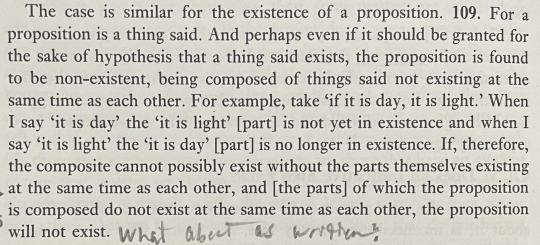
Sextus Empiricus on the "lekton", found in Hellenistic Philosophy: Introductory Readings. I'm reminded of passages from Sokolowski and Rescher that also address the theme of parts and wholes in temporal perspective -
and I find their accounts much more satisfying.
"The fact that the whole is given in a way different from the presence of each placement does not mean that the whole is not given at all; it is just given in a different way."
2 notes
·
View notes
Text
As far as I know, Peirce never doubted that thoughts are signs, that "we think only in signs" (and not simply with signs), that concepts are "general mental signs", etc. I definitely haven't read Short's book in its entirety, but I know he argues that Peirce made some substantial corrections to his semeiotic throughout his life, so I wonder how he approaches this question later on (that intentionality as such is a semiotic phenomenon, more than something intimately bound up with the play of signs) - whether these objections to considering thoughts as signs are eventually dispelled, whether Peirce remained mistaken and is in need of further correction, etc. But obviously I'd have to go back to find out.
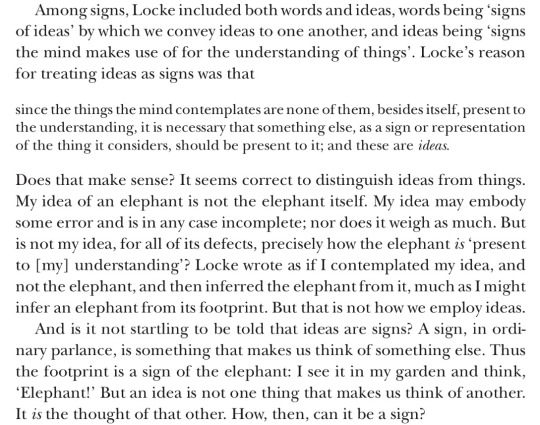

T.L. Short, Peirce's Theory of Signs
There's a related passage later on that I'm still thinking about a bit -
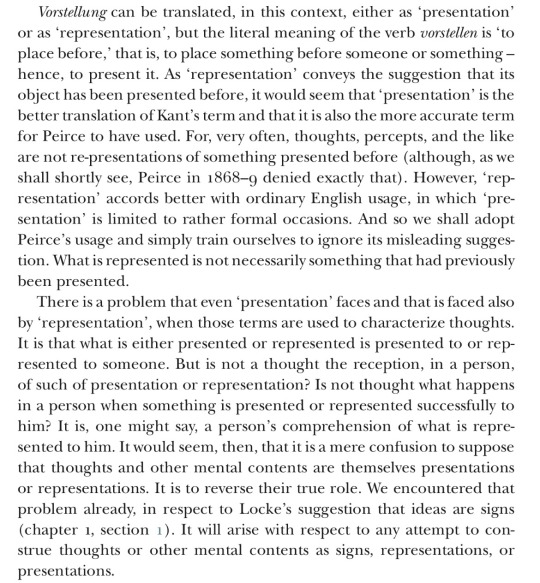
7 notes
·
View notes
Text
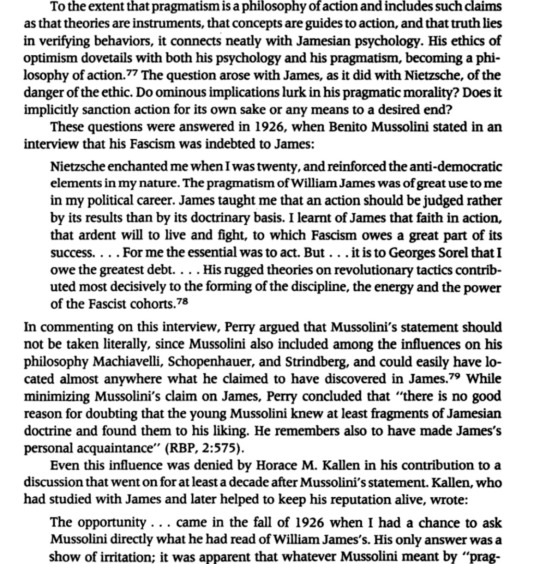

Gerald Eugene Myers, William James: His Life and Thought
Unfortunately I’ve encountered quite a few people online who take Mussolini at his word on this..
2 notes
·
View notes
Text

Haruki Murakami, Kafka on the Shore, tr. Philip Gabriel

William James, The Principles of Psychology Volume Two, Chapter XXII
31 notes
·
View notes
Text
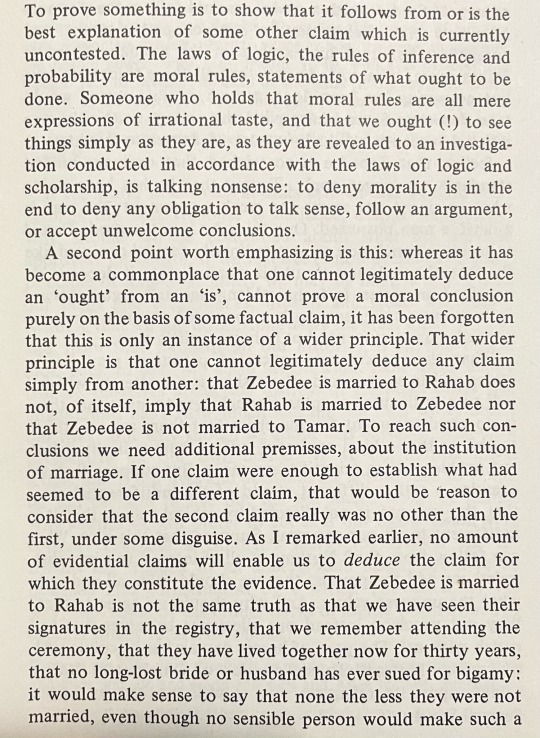
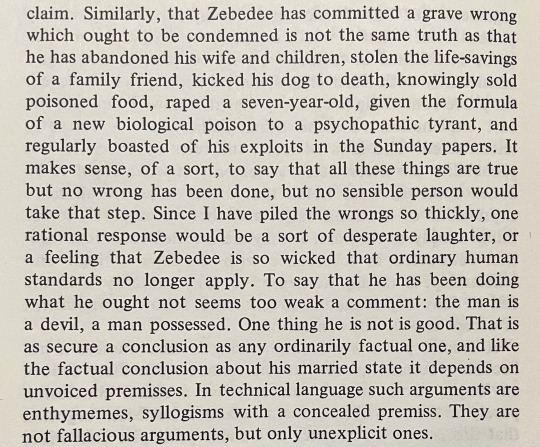
Stephen R. L. Clark, From Athens to Jerusalem
that Zebedee is married to Rahab does not, of itself, imply that Rahab is married to Zebedee...
i.e. it presupposes other propositions concerning marriage, namely that being married to someone is a symmetrical relationship, unlike being taller than them.
I was almost scandalized by that bit until I read on and saw what he was getting at.
0 notes
Text
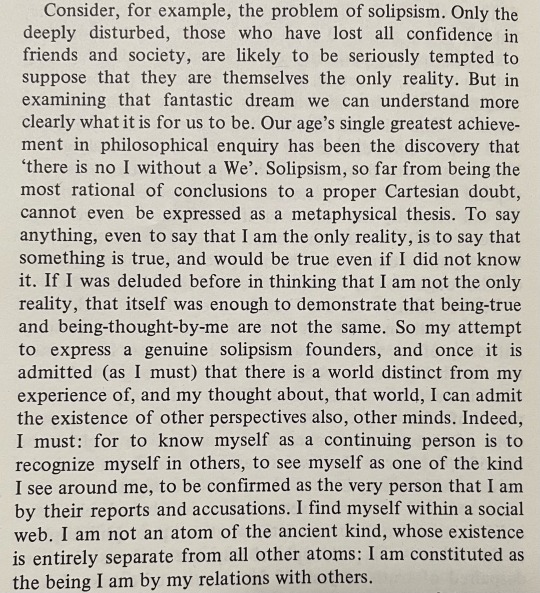
Stephen R. L. Clark, From Athens to Jerusalem
0 notes
Photo
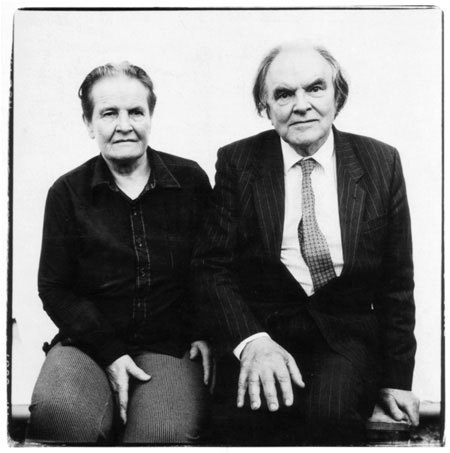
Happy Birthday, Peter Geach - Logic of itself cannot give anyone the answer to any questions of substance; but without logic we often do not know the import of what we know and often fall into fallacy and inconsistency. (Photo: Peter Geach with Elizabeth Anscombe, by Steve Pyke)
9 notes
·
View notes
